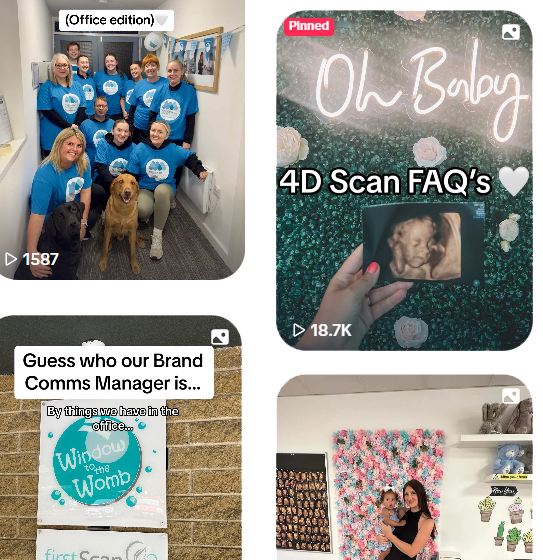Motherhood is life-changing, but it’s not always the glowing, blissful experience we see on social media. Up to one in four women experience mental health difficulties during pregnancy (antenatal) or after birth (postnatal), yet many suffer in silence.
This post explores the signs of maternal mental health struggles, where to seek help, and practical steps for recovery.
Understanding Maternal Mental Health
Maternal mental health issues can begin before a baby arrives (antenatal) or develop after birth (postnatal). Both are serious but treatable conditions.
Antenatal Mental Health (During Pregnancy)
Mental health struggles can begin in pregnancy and may include:
- Antenatal depression – Persistent sadness, hopelessness, or withdrawal.
- Antenatal anxiety – Excessive worrying, racing thoughts, panic attacks.
- Perinatal OCD – Obsessive, distressing thoughts about the baby’s safety.
- Birth trauma fears – Anxiety over labour and delivery.
Postnatal Mental Health (After Birth)
After birth, many mums experience the “baby blues,” which typically pass within two weeks. However, more serious conditions include:
- Postnatal depression (PND) – Persistent low mood, tearfulness, and loss of enjoyment in life.
- Postnatal anxiety – Intense worry, panic attacks, or feeling constantly “on edge.”
- Postpartum psychosis (rare but serious) – Confusion, hallucinations, or extreme mood changes (requires urgent medical attention).
Signs to Look Out For
Common Symptoms of Antenatal & Postnatal Mental Health Issues:
✅ Low mood or persistent sadness – Feeling tearful or hopeless most of the day.
✅ Excessive anxiety or fear – Constant worry about pregnancy, birth, or the baby’s wellbeing.
✅ Irritability or anger – Feeling unusually frustrated or overwhelmed.
✅ Exhaustion beyond normal pregnancy fatigue – Struggling to function.
✅ Changes in appetite or sleep – Loss of interest in food or difficulty sleeping.
✅ Difficulty bonding with the baby – Feeling detached or indifferent.
✅ Intrusive or harmful thoughts – Thoughts of self-harm or harming the baby (seek urgent help).
If these feelings persist for more than two weeks, it’s important to seek support.
Where to Get Support
You’re not alone—help is available.
NHS & Charitable Organisations
💙 NHS Perinatal Mental Health Services – Speak to your GP, midwife, or health visitor for a referral.
💙 Maternal Mental Health Alliance (https://maternalmentalhealthalliance.org/) – A UK charity and network of 130 organisations, dedicated to ensuring women and families affected by perinatal mental health problems have access to high-quality, compassionate care.
💙 Mind (www.mind.org.uk) – Information and support for maternal mental health.
💙 Tommy’s (www.tommys.org) – Pregnancy mental health resources and expert advice.
💙 The Samaritans (Call 116 123 for free, 24/7) – For immediate emotional support.
Practical Tips for Managing Maternal Mental Health
💛 Talk About It – Open up to your partner, a trusted friend, or a professional.
💛 Seek Professional Help – Therapy, counselling, or medication can be life-changing.
💛 Join a Support Group – Connecting with other mums reduces isolation.
💛 Prioritise Self-Care – Rest, fresh air, and small moments of relaxation matter.
💛 Lower Your Expectations – You don’t have to be a “perfect” mum—just a loving one.
Maternal mental health matters. If you’re struggling, please reach out—help is available, and you don’t have to go through this alone.
If you or someone you know needs urgent support, speak to a GP or call a helpline today.













 Packages & Prices
Packages & Prices  Important Info & Policies
Important Info & Policies  Your Scan
Your Scan